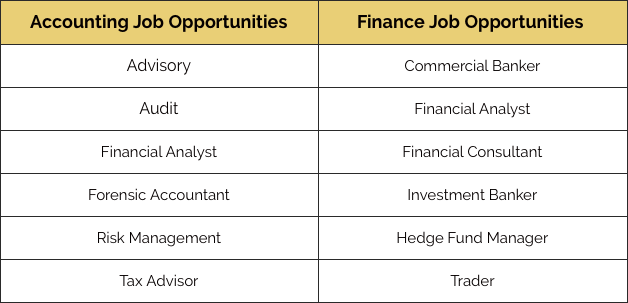Accountants and auditors require to have a keen eye for information and strong problem solving and analytical skills. You'll need to have knowledge of general accounting concepts, practices, and laws, which is typically acquired through a four-year accounting or related degree (How do you finance a car). Though you don't absolutely need one to begin, your task prospects will increase enormously if you have or are pursuing an accounting accreditation. Licensed Public Accountant (CPA) is the most popular, but there are a range of others depending on your specialized. As the name implies, credit analysts analyze the credit and financial data and history of people and business to figure out the degree of risk included in lending them cash or extending them credit.
Credit experts mostly work for banks and Look at more info credit card business however can also work for home loan, insurance coverage, and financial investment firms. You'll require strong decision-making, crucial thinking, analytical, research study, and interaction skills in addition to a bachelor's degree in financing, accounting, or a related field. Some positions may also need a Chartered Financial Analyst (CFA) credential. Brokers and traders buy and offer securities like stocks, bonds, and other funds and do research study ahead of these trades. However, while traders often purchase or sell based on the dreams of a supervisor of a portfolio or other mutual fund, brokers are responsible directly to the financiers and might work for themselves or a brokerage or securities company.
Both positions need a four-year degree and certain Financial Market Regulatory Authority (FINRA) licenses to finish trades on behalf of others. Financial analyst is a very first financing task title for lots of people getting in the industry. Depending on where you work, you might offer assistance to businesses and people making financial investment choices; evaluate the performance of stocks, bonds, and other investments; evaluate existing and historic monetary data for the business you work for or others; and research study possible investments. No matter the business, most financial analysts are accountable for reporting their findings to others. You're most likely to be working for large banks consisting of investment companies and banks in New york city City and other monetary hubs, however you can also work as a business monetary expert in other industries.
To get started, you need to have a bachelor's degree in finance or a related field. Pursuing a related internship will likewise assist you land an entry-level position. In order to progress as a financial expert to a portfolio or fund management position, you might require a CFA accreditation or other FINRA license and an MBA. Many banks have two-year financial expert programs for brand-new graduates. Some of these programs, like the one at Wells Fargo, are rotational, permitting you to find out about various areas in the financial industry to assist you choose where you wish to opt for the rest of your career.

Budget analysts work across industries in private business and for federal government offices and need to have strong analytical and communications abilities to describe choices to others in a company. Spending plan experts normally require a bachelor's degree in accounting or a similar field, however some business will accept experience instead while others are trying to find candidates with an MBA. In order to work in some government budget plan expert positions, you might need a Qualified Federal government Financial Manager credential from the Associate of Government Accountants. Personal monetary organizers and consultants help individuals with their financial goals, including providing education on investments, choosing investments on their behalf, handling their portfolios, preparing for long-lasting goals, and monitoring their finances.
About What Does Mm Mean In Finance
Financial consultants may advise clients once or for a short time, whereas monetary organizers often have long continuing relationships with customers (which means they need strong interpersonal abilities) and must be Licensed Financial Planners to utilize the task title. In addition to analytical skills and financial investment understanding, financial planners need to likewise have an entrepreneurial frame of mind, Goodfellow states, considering that even if you're working for another organization, you're often building up a list of clients yourself. Danger professionals work for financial investment banks and companies, home mortgage and insurance provider, and corporate lenders, to name a few. Danger experts utilize quantitative and qualitative techniques to examine the danger to: Existing and prospective financial investments (in both domestic and foreign markets) Making capabilities, The success of companies, Risk specialists need to have a strong capability to recognize potential problems and good inductive, deductive, and mathematical thinking abilities.
A degree or focus in international company is likewise useful for danger professionals. Financial inspectors ensure compliance with financing laws and regulations by evaluating balance sheets, financial records, and loan paperwork. They generally work for financial organizations and insurance provider or for the federal government. Federal government financial inspectors frequently examine scams or cash laundering at monetary organizations and other companies, while those working for personal companies ensure the stability and compliance of their own companies. Financial examiners need strong attention to information and analytical abilities and a four-year degree in accounting or another field (though a certain number of accounting classes is required for anyone intending to work for the FDIC), and may consider getting a Certified Public Accountant credential to https://www.businesswire.com/news/home/20190911005618/en/Wesley-Financial-Group-Continues-Record-Breaking-Pace-Timeshare make them a more competitive candidate.
Quants primarily work for financial investment banks and hedge funds, however may also be used by depository banks, trading companies, or fintech companies. To become a quant, you need to have high-level mathematical and other thinking abilities. A great deal of your work will be abstract instead of concentrated on a specific company or industry, and far more time will be invested on a computer screen than connecting with associates. The income for this position is high, but so is the barrier to entry: You'll need a master's degree or preferably a Ph, D in a quantitative field like math, finance, stats, or economics and be able to show a strong computer ability, or a master's degree or Ph, D in financial engineering or computational financing.

They determine the cost of those events and help design insurance coverage policies and other models. Actuaries mostly work for insurance provider however can likewise be used by investment companies, federal governments, or banks. Actuaries have a really high salary and the marketplace for these jobs has a very high predicted growth rate, Goodfellow states. The BLS approximates that the field will grow 18% from 2019 to 2029. The task is also fairly low tension, particularly compared to other jobs of this wage level and in the financing industry. You will need very strong mathematics and reasoning skills and a four-year degree in actuarial sciences, finance, accounting, or an associated field.